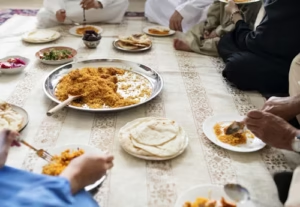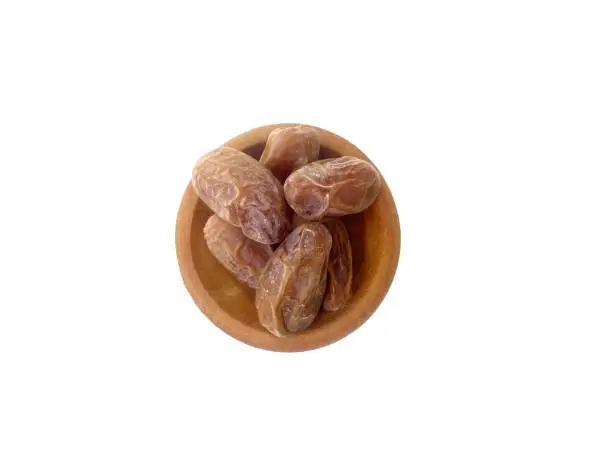Ramadan diet plan for weight loss
Ramadan is a sacred month for millions of Muslims around the world. It’s a time for fasting, prayer, self-reflection, and spiritual growth. However, Ramadan can also present an opportunity to improve physical health, especially when approached with a healthy diet plan. Many people aim to lose weight during Ramadan, but without proper guidance, it can be easy to fall into unhealthy eating patterns.
will walk you through a diet plan specifically designed for weight loss during Ramadan, ensuring that you can achieve your goals without compromising your health or spiritual practices. Whether you aim to lose a few pounds or 10kg, this article will give you the tools and strategies to make your fasting experience both rewarding and beneficial for your body.
Weight Loss During Ramadan
How Does Fasting Help With Weight Loss?
- Calorie Deficit: The foundation of weight loss is creating a calorie deficit, meaning you burn more calories than you consume. Fasting naturally reduces the eating window, which can help reduce overall calorie intake.
- Metabolism Boost: Fasting allows your body to burn fat for energy once your carbohydrate stores are depleted, leading to fat loss.
- Hormonal Changes: Fasting can help regulate hormones like insulin, which plays a critical role in fat storage and metabolism.
The Importance of Balanced Nutrition During Ramadan
- Nutrient-Dense Meals: While fasting reduces eating time, it is crucial to eat nutrient-dense meals during Suhoor (pre-dawn meal) and Iftar (meal after sunset) to sustain energy, avoid cravings, and support weight loss.
- Macronutrient Balance: A combination of lean protein, healthy fats, and complex carbohydrates ensures sustained energy levels throughout the day.
The Fundamentals of a Ramadan Weight Loss Diet
Suhoor (Pre-Dawn Meal)
Suhoor is vital as it sets the tone for your energy levels throughout the day. A well-balanced Suhoor will help prevent mid-day fatigue, cravings, and overeating during Iftar.
Best Foods for Suhoor:
- Complex Carbs: Whole grains (oats, quinoa, whole-wheat bread) for slow energy release.
- Lean Proteins: Eggs, Greek yogurt, and cottage cheese to keep you feeling full.
- Healthy Fats: Avocados, nuts, seeds, and olive oil to provide sustained energy.
- Fruits and Vegetables: Hydrating fruits like cucumbers, watermelon, or berries help with hydration and provide essential vitamins and minerals.
Avoid These Foods at Suhoor:
- Refined Carbs: White bread, pastries, and sugary cereals can lead to a sugar crash and make you hungrier faster.
- Fried Foods: These are calorie-dense and can leave you feeling sluggish throughout the day.
- Excess Salt: While salt can help retain water, too much can make you feel bloated and dehydrated during the fast.
Iftar (Breaking the Fast)
Iftar is when you break your fast, and it’s tempting to indulge. However, if weight loss is your goal, it’s important to make mindful choices during Iftar.
Healthy Iftar Foods:
- Dates: Traditionally, dates are consumed to break the fast as they are high in natural sugars, providing quick energy without spiking blood sugar.
- Soups: Light, broth-based soups with vegetables can help replenish lost fluids and provide fiber.
- Lean Proteins: Grilled chicken, fish, tofu, or legumes like chickpeas and lentils are great sources of protein that keep you full and support muscle maintenance.
- Salads and Vegetables:Green leafy vegetables, cucumbers, tomatoes, and leafy greens are high in fiber and essential nutrients, perfect for weight loss.
What to Avoid at Iftar:
- Fried Foods: Samosas, pakoras, and other deep-fried snacks are high in unhealthy fats and calories.
- Sugary Desserts: Avoid high-calorie sweets like baklava, kunafa, and sugary puddings, as they contribute to excess calorie intake.
- Carbonated Drinks: Soda, sugary juices, and sweetened beverages can add unnecessary sugar and calories. Ramadan diet plan for weight loss
Dinner (Post-Iftar Meal)
Your dinner should be light, nutrient-dense, and satisfying but not too heavy. Eating a smaller meal will help prevent overeating and allow for proper digestion before sleep. Ramadan diet plan for weight loss
- Healthy Dinner Options:
- Grilled Meat and Vegetables: Chicken or fish with a side of roasted vegetables like zucchini, peppers, or carrots.
- Vegetable-Based Soups or Stews: These are filling but low in calories.
- Quinoa or Brown Rice: Whole grains to keep you satisfied while keeping your calorie intake moderate.
The Importance of Hydration
How to Stay Hydrated During Ramadan

Dehydration can lead to fatigue, headaches, and difficulty concentrating, so maintaining hydration during the non-fasting hours is crucial.
- Drink Plenty of Water:Aim for at least 8-10 glasses of water between Iftar and Suhoor to stay hydrated.
- Coconut Water or Herbal Teas: These provide electrolytes and can help maintain fluid balance.
- Avoid Sugary Beverages: Sugary sodas and juices can lead to a sugar crash and unnecessary calories.
Foods to Stay Hydrated
- Water-Rich Fruits and Vegetables: Cucumbers, watermelon, oranges, and strawberries are all hydrating and nutrient-rich, helping to keep you feeling full without adding many calories.
- Soup Broths: Light, vegetable-based soups are hydrating and help replenish fluids lost during the fast.
Exercise and Physical Activity During Ramadan
When to Exercise During Ramadan
Exercise during Ramadan is important for maintaining muscle mass and supporting weight loss. However, the timing and intensity of your workouts must be adjusted.
- Best Times to Exercise:
- After Iftar: This is the ideal time to engage in moderate-intensity exercise as your body has fuel and hydration.
- Before Suhoor: Light exercise such as stretching or yoga is great before the pre-dawn meal.
- During Ramadan, Opt for Low-Intensity Workouts:Walking, light jogging, or yoga can help you maintain your fitness level without over-exerting yourself.
Incorporating Strength Training
Strength training is beneficial for building lean muscle, which boosts your metabolism and helps burn fat.
- Exercises to Include:
- Bodyweight exercises like squats, lunges, push-ups, and planks.
- Weightlifting (with light weights) or resistance band exercises.
Mindful Eating and Portion Control
Mindful Eating
Practicing mindfulness while eating can prevent overeating and help you make healthier choices.
- Eat Slowly: Take the time to savor each bite, as it takes time for your body to signal when it’s full.
- Focus on Hunger Cues :Wait for true hunger before eating and avoid eating out of habit or boredom.
- Eat to Satisfaction, Not Fullness: Avoid overeating by listening to your body and stopping when you’re satisfied, not stuffed.
Portion Control
Managing portion sizes is key to maintaining a calorie deficit for weight loss.
- Use Smaller Plates: This can help with portion control and prevent overeating.
- Balance Your Plate: Ensure you have a healthy balance of protein, vegetables, and carbs.
Overcoming Common Challenges During Ramadan
Cravings and Emotional Eating
Many people experience food cravings or turn to food for comfort during Ramadan. To manage this:
- Distract Yourself:Engage in activities like reading, praying, or spending time with family to take your mind off cravings.
- Healthy Alternatives: Have healthy snacks like fruits, nuts, or yogurt ready when cravings hit.
Overcoming Fatigue and Low Energy
Low energy can make sticking to your diet and exercise plan challenging.
- Ensure Adequate Sleep: Aim for 7-8 hours of sleep to allow your body to recover and stay energized.
- Eat Balanced Meals: Avoid sugary or processed foods that may cause energy crashes.
Staying Committed to Your Weight Loss Goals
Losing weight during Ramadan is possible with the right approach. By focusing on nutrient-dense foods, staying hydrated, managing portion sizes, and incorporating light physical activity, you can achieve your weight loss goals while also honoring the spiritual aspects of Ramadan.
How do I avoid overeating at Iftar?

Avoiding overeating at Iftar during Ramadan can be challenging, especially after a long day of fasting when your hunger might be at its peak. However, with mindful strategies and a well-thought-out approach, you can enjoy a healthy and satisfying Iftar without overeating. Here are some practical tips to help you manage your appetite and prevent overeating: Ramadan diet plan for weight loss
Start with Water and Dates
- Hydrate First: After a long day of fasting, your body is likely dehydrated, which can sometimes be mistaken for hunger. Start Iftar by drinking a glass of water to rehydrate. This helps signal to your body that food is coming, reducing the initial urge to eat too much.
- Dates for Energy: Dates are a traditional food to break the fast because they’re rich in natural sugars, fiber, and essential nutrients. Eat 1–3 dates after your water to give your body a quick source of energy while also controlling hunger. The fiber in dates helps with digestion and makes you feel full faster.
Have a Light Soup
- Begin with a Simple Soup:A light, broth-based soup (such as lentil soup or vegetable soup) can be an excellent way to start your Iftar. Soups are hydrating, low in calories, and help fill up your stomach, making it easier to avoid overeating when you get to the main course. It also warms up your stomach and helps prepare it for digestion.
Eat Slowly and Mindfully
- Chew Thoroughly: Take the time to chew your food slowly and savor each bite. Eating too quickly can lead to overeating because your brain doesn’t have time to register that you’re full. Try putting your fork or spoon down between bites and focus on the taste and texture of your food.
- Mindful Eating: Be present while eating. Pay attention to your hunger and fullness cues, and avoid distractions like TV or your phone. This helps you recognize when you’re satisfied and can help you avoid overeating.
Use Smaller Plates
- Control Portions with Smaller Plates: The size of your plate can influence how much food you eat. Larger plates may encourage you to fill them up, leading to overeating. By using smaller plates, you can control portion sizes and prevent yourself from overeating without even realizing it.
Focus on Balanced Meals
- Include Protein and Fiber: A balanced meal will help keep you full for longer. Focus on lean protein sources (chicken, fish, legumes) and fiber-rich foods (vegetables, whole grains). These foods take longer to digest and can keep hunger at bay after the meal.
- Healthy Fats: Incorporate healthy fats like those found in olive oil, nuts, and avocados. These fats contribute to satiety and help stabilize your blood sugar levels, reducing the chances of overeating.
- Avoid Highly Processed Carbs and Sugars: Simple carbs and sugary foods (like white bread, pastries, and sweets) can cause blood sugar spikes, which may lead to cravings and overeating later on.
Practice Portion Control
- Fill Half Your Plate with Vegetables: Vegetables are low in calories but high in fiber and water content, making them filling without adding too many calories. By filling half of your plate with vegetables, you can help ensure you’re eating fewer calorie-dense foods.
- Use the “Hand” Method: Portion control is essential to avoid overeating. You can use your hand as a guide:
- Protein: One palm-sized portion of protein.
- Carbs: One fist-sized portion of complex carbohydrates (like brown rice, quinoa, or whole wheat bread).
- Fats: A thumb-sized portion of healthy fats (like olive oil or avocado).
- Vegetables: As many vegetables as you like, since they are low-calorie but nutrient-dense.
Avoid Drinking Sugary Drinks
- Say No to Sugary Beverages: Sodas, sweetened fruit juices, and energy drinks can add unnecessary calories without providing much nutritional value. These drinks can also make you feel bloated and uncomfortable, which might make you more likely to overeat. Stick to water, herbal teas, or light homemade drinks like fresh lemon water or coconut water.
Take Breaks Between Courses
- Pause Between Courses: After the initial soup and main meal, take a small break before moving on to dessert or a second serving. This break gives your body time to register fullness. You might find that you’re satisfied and no longer want more food after the break.
- Rest for 10–15 Minutes: Instead of immediately reaching for dessert or a second helping, give yourself a brief pause. Sometimes, our brain needs time to catch up with our stomach, and this short break can help you avoid the urge to overeat.
Avoid Extreme Hunger Before Iftar

- Eat a Healthy Suhoor: A balanced Suhoor (pre-dawn meal) can help you avoid extreme hunger during the day, which may lead to overeating at Iftar. Include protein, healthy fats, and fiber to help maintain your energy levels and curb your appetite.
Keep Busy After Iftar
- Engage in Post-Iftar Activities: Often, overeating happens because we’re bored or have nothing else to do after eating. Engage in light activities such as a short walk, spending time with family, or reading. Keeping busy will help you avoid snacking out of habit or boredom after the meal.
Stay Consistent with Regular Meal Timing
- Stick to Set Meal Times: Having a consistent routine during Ramadan, where you have meals at regular intervals (Suhoor, Iftar, and perhaps a light snack after Taraweeh), helps regulate your hunger. Skipping meals or eating irregularly may cause you to feel famished, making you more likely to overeat later.
Listen to Your Body’s Cues
- Hunger vs. Appetite: Pay attention to whether you’re actually hungry or just eating because the food is in front of you. This distinction can help you avoid overeating. If you’re still hungry after your first serving, give yourself a few minutes to assess whether you’re genuinely in need of more food or simply eating out of habit.
Conclusion
Overeating at Iftar is a common issue during Ramadan, but with a little mindful preparation and some healthy eating strategies, it’s entirely avoidable. By starting with hydration, eating slowly, choosing balanced meals, and practicing portion control, you can enjoy a satisfying Iftar without going overboard. Additionally, being conscious of your hunger cues and engaging in mindful eating practices will help you maintain a healthy balance throughout the month. Ramadan diet plan for weight loss
Staying focused on your long-term health goals and avoiding distractions during meals will ensure that you can enjoy the blessings of Ramadan while also taking care of your body.
FAQs
Can I lose weight during Ramadan?
- Yes, by following a healthy, balanced diet and maintaining a calorie deficit, weight loss is possible during Ramadan.
How many calories should I eat during Ramadan?
- The exact number of calories depends on your individual needs, but aim for a slight calorie deficit to promote weight loss while still ensuring you’re consuming enough nutrients.
Is it okay to exercise during Ramadan?
- Yes, exercise is important for overall health and weight loss. Aim for light to moderate workouts after Iftar or before Suhoor.
How do I avoid overeating at Iftar?
- Practice portion control, start with a light soup, eat slowly, and focus on nutrient-dense foods like protein, vegetables, and whole grains.
What foods should I avoid to lose weight during Ramadan?
- Avoid fried foods, sugary desserts, refined carbs, and sugary beverages. Stick to whole, natural foods that are rich in nutrients.

